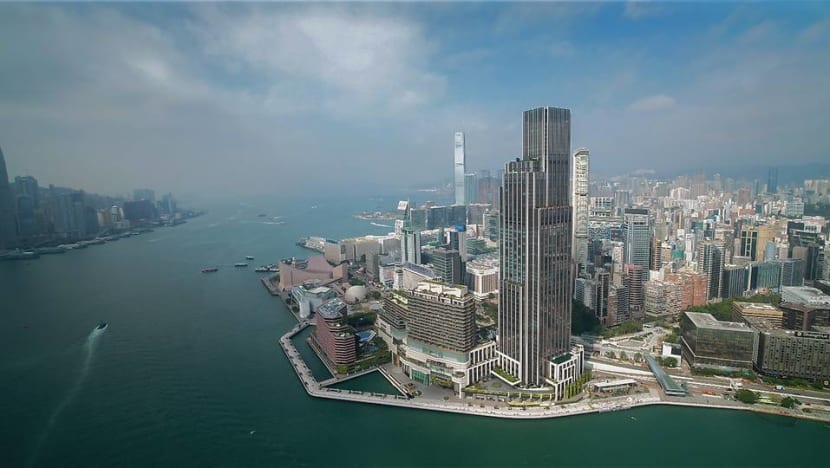Commentary: Hong Kong’s tycoons are damaging the city’s credit culture
Hong Kong’s old-money developers are facing a credit reckoning after decades of easy borrowing, says Bloomberg Opinion's��Shuli Ren.

HONG KONG: How creditworthy are Hong Kong’s billionaire tycoons? Despite the glamour and prestige they project, the city’s old money are dishing out one nasty surprise after another. As bankers and investors wake up to the reality that they might never be made whole, the easy credit culture long afforded to the elite will inevitably come to��an end.��
New World Development’s decision not to repay coupons on its perpetual notes was a rude awakening, but it was by no means an outlier. Emperor International Holdings, a fellow developer that sells luxury apartments, said it had HK$16.6 billion (US$2.1 billion) in bank borrowings that are either overdue or��have breached loan covenants, which may result in immediate repayment requests.��
Emperor is a��household brand in Hong Kong. The 82-year-old patriarch Albert Yeung started with a jewellery store in the late 1960s, selling Rolex and Omega watches. But over the years, the “king of clocks and watches” expanded into media and real estate. Emperor Entertainment, in particular, is closely associated with local culture. It manages a roster of canto-pop singers and actors, such as Nicholas Tse.��
LOSING FAITH
Or consider Far East Consortium International, which went public more than half a century ago. The builder, known for projects at the city’s iconic old Kai Tak airport, has pan-Asia ambition. It has joined forces with Chow Tai Fook��– New World’s parent��– to develop a casino complex in Brisbane ahead of the 2032 Summer Olympics.��
Just like New World, Far East is sowing confusion among its US$360 million perpetual note holders. In its latest annual report released in late June, the company said it would no longer pay dividends. Investors are now worried that it��would follow its business partner’s footsteps��by��not repaying��coupons.��
The builder’s open market operations are equally alarming. In the fiscal year ending March, it bought US$4 million principal amount of perpetuals but resold at a loss.��
This is a sharp turn of events. Last September, Far East won a concession from its investors, buying time to redeem debt. The builder promised then that it would “aim to initiate partial call” in the first quarter of 2025. Its own trading activities suggest it has not done so.��
TOO BIG TO FAIL?
Until recently, the city’s old money had it easy. The��name brand itself spelled investment grade. As of last June, nearly 70 per cent of New World’s bank loans were unsecured. In addition, local borrowers could issue bonds governed by English law.
By comparison, dollar notes from mainland developers, such as China Evergrande Group, had to follow New York law. For��issuers,��this law might be��more stringent in the event of consent solicitation, where a company asks to change the terms of its securities.
But that leniency is running thin. Granted, New World managed to eke out an US$11.2 billion loan refinancing deal��– perhaps because when it owes banks so much money, it owns them. Others may not be so lucky.
Already, lenders are tightening the screws on smaller developers, asking for more collateral��and halting new loans altogether. As for bond investors, they no longer assume Hong Kong businessmen would act any differently from those in the mainland. They are not.��
It’s scrutiny��time. Hong Kong’s A-listers deserve a more careful look.��












